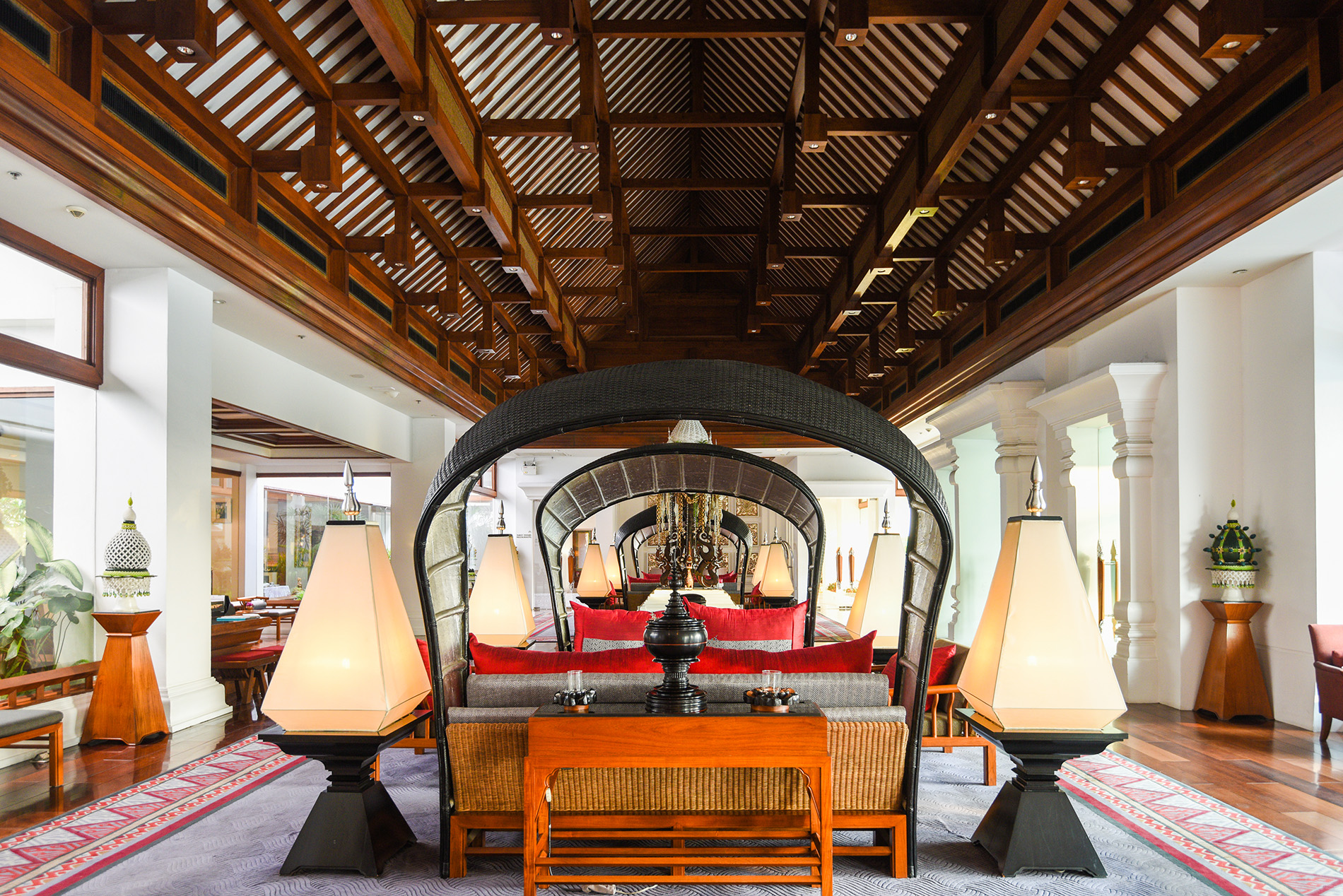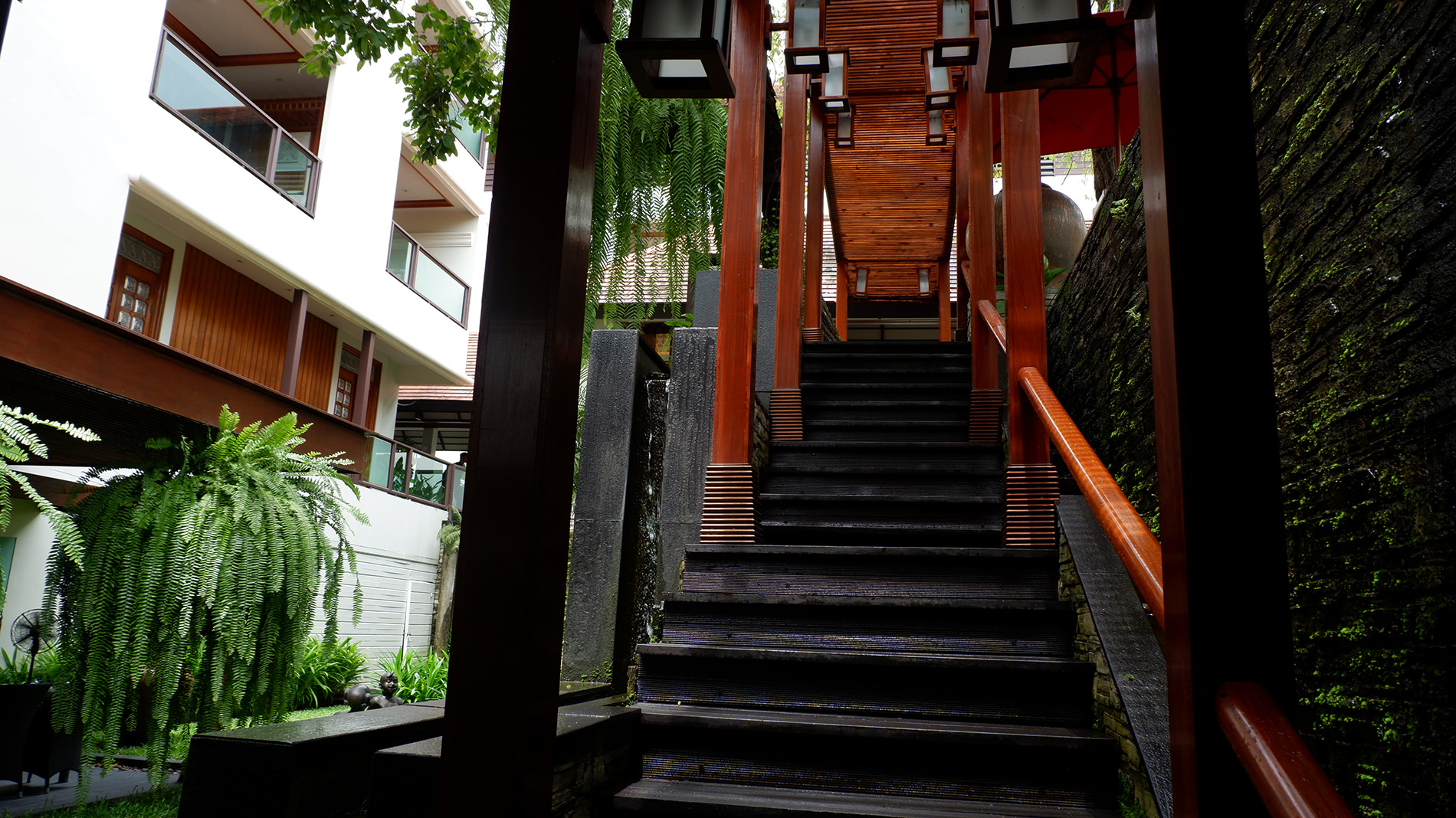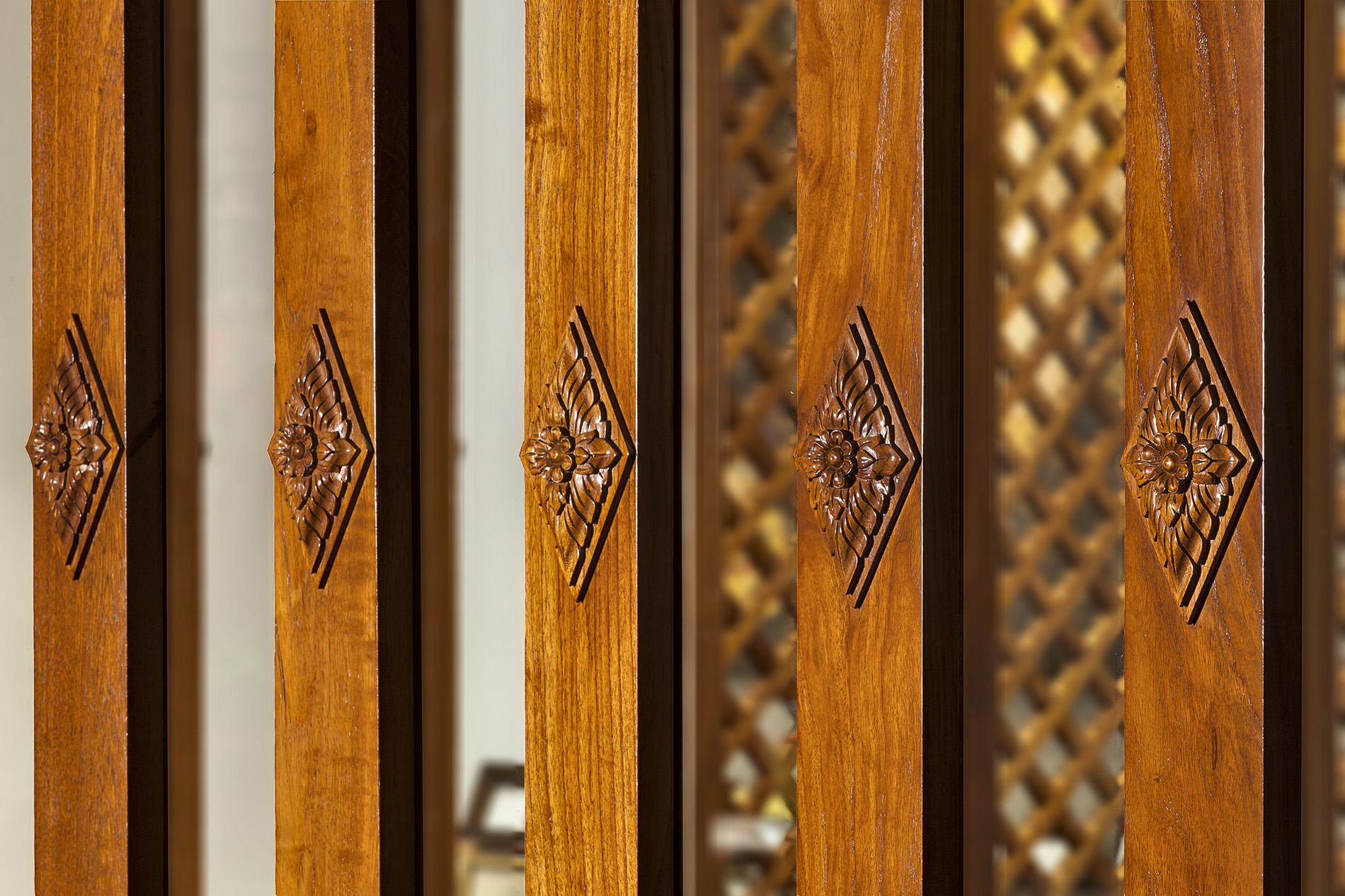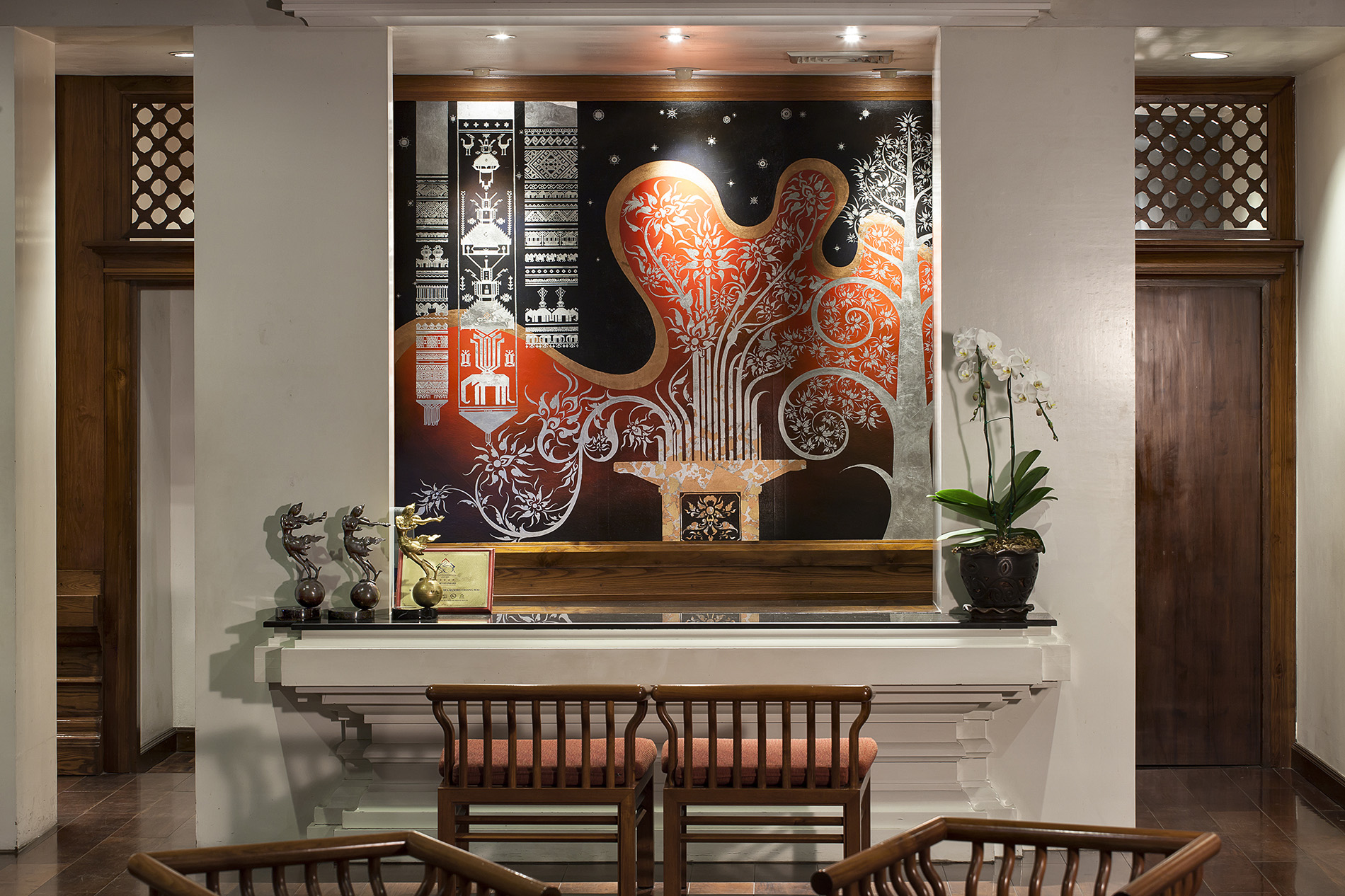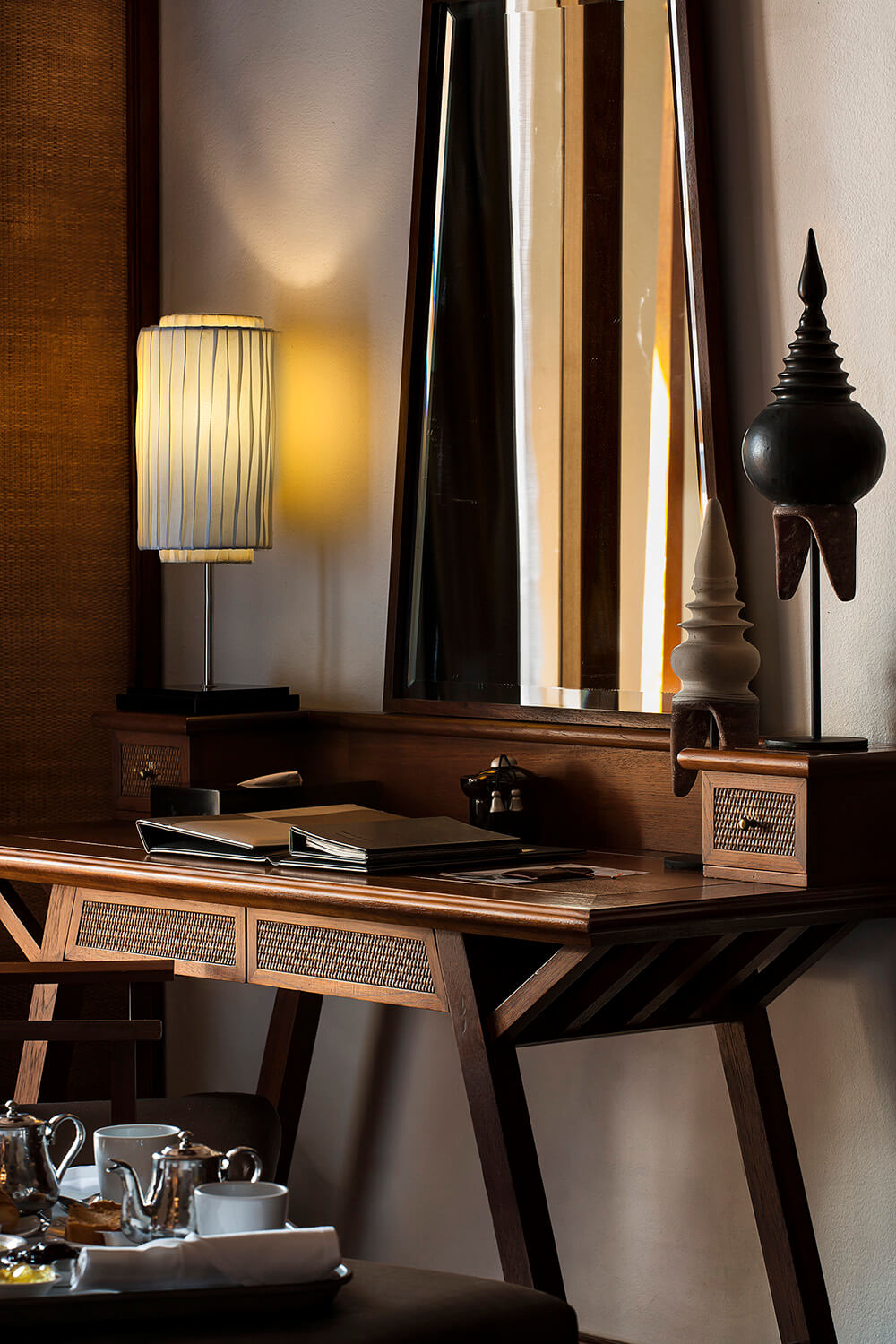“Kor-Song” wall presents Lanna style joining a wall and ceiling
DECORATIVE INFLUENCES IN THE RESORT
The resort’s decorative style represents traditional Lanna life. The entire resort symbolizes the day to day life of the Lanna community in the Wat Gate area. The resort’s pier welcomes guests to the main hall or the resort’s lobby. Mira Restaurant represents the local restaurants along the river and the swimming pool area represents a local activity area. Not far from the pool, there is a spacious pavilion which symbolizes a crowded community’s market by the river. Before walking into the lobby area, there is an arch at the entrance, an activity area, and a mock up of Buddhist temple which give guests a feeling of serenity. A big Buddha statue is also placed at the entrance to the lobby.
Silver, lacquer ware, wood carvings, and woven fabrics from several Chiang Mai communities are used to decorate the resort. Every area of the resort and all furnishing throughout the resort embody the Lanna heritage.
Lanna is home to several ethnic groups including Tai Lue, Tai Yai, and at least six hill tribes. Each ethnic group and hill tribe has their own unique culture.
The unique character of each group is proudly presented in the resort decoration; the resort’s structure, decorative art pieces, furniture, and decor.
The following are examples of features where Lanna style is blended with the resort’s design, while still allowing the building to best function as a resort.
The arch over the entrance that imitates the entrance to temples or palaces. We compare the resort to a palace.
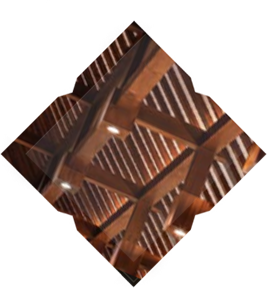
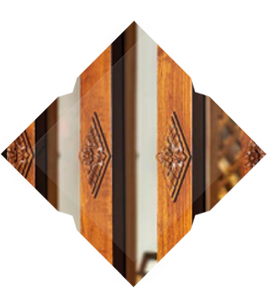
“Pa-Ka-Na-Ta-Pa” wall is an ancient-style wall which has holes that allow people inside to see out through the holes.
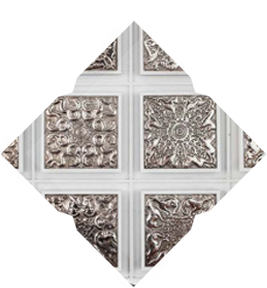
“Signs of Zodiac” is another Lanna belief. Paper cuttings in zodiac shapes are used in traditional Lanna ceremonies. The zodiac patterns can be carved on silver plates as well.
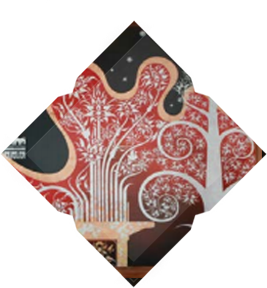
Paintings blend the traditional technique using gold, silver and bronze foils with modern acrylics. This technique gives more dimensions to the paintings.
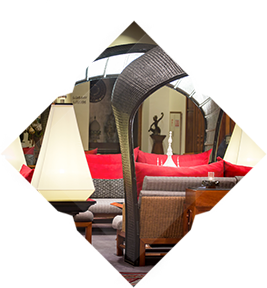
“Koob-Chang” is an imitation of a nobleman’s seat on an elephant's back. The seats we use in the resort are a little higher than the normal size of the traditional Koob in order to make them more comfortable.
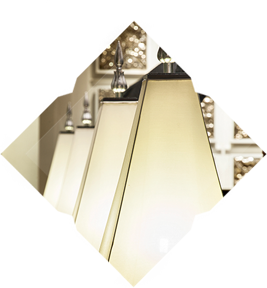
The lamps in the lobby imitate the shape of the sacred flower-decorated trays which are traditionally placed beside a royal bench.
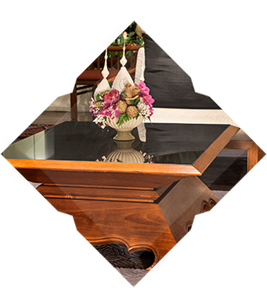
The center table in the lobby is in the Lanna style and has carvings of betel leaves and areca nuts on the legs.
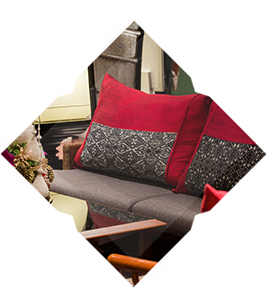
The chairs in the lobby are built in the traditional palanquin shape.
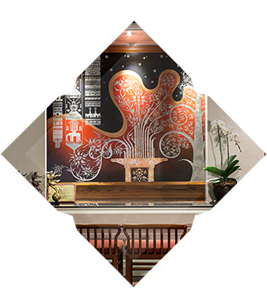
The welcome desk has a traditional lotus-like base. The paintings displayed on the wall behind the desk, depict Lanna ceremonies which are related to ancient beliefs of the Lanna Kingdom. Scenes depicted in the paintings include a Bodhi tree with supporting poles, various Lanna flags, cloth weaving, and a palace.
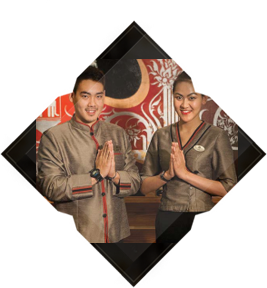
Staff uniforms are designed using overlapping styles of traditional attire and are a blend of Tai Lue and Lanna styles. From the front the trousers look like a traditional skirt because they overlap. The shirts are cropped and embroidered with 3/4 sleeves.
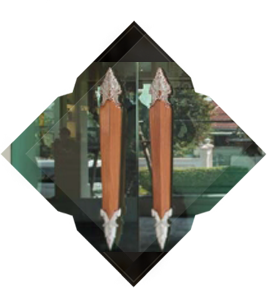
The door handles mimic those found in Hindi scriptures.
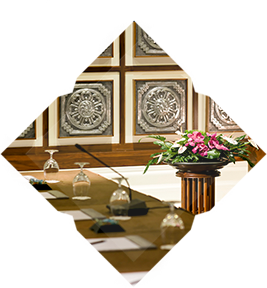
The meeting rooms are decorated with flower patterns on silver plates, and wood carvings on the walls that depict the occupations of the majority of Lanna people in Chiang Mai.
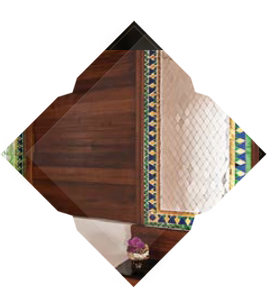
The mirror at the telephone area is designed in the style of Chiang Tung art.
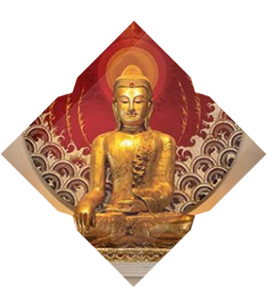
The Buddha Sculpture in the Buddha room is a miniature of the great Buddha at Chwedagon, representing the art of Tai Yai people.
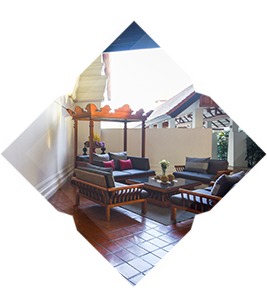
The bench in front of the Buddha room is influenced by the shape of a monk’s bench which is used in Buddhist ceremonies.
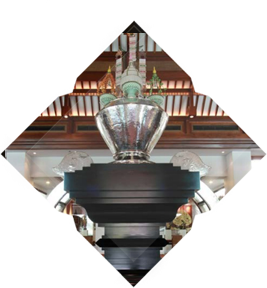
“Pu-Ra-Na-Ka-Ta” pot (literary means a pot of prosperity) – an Indian influenced belief among Lanna people. It represents the way Lanna people welcome their guests and bless them.
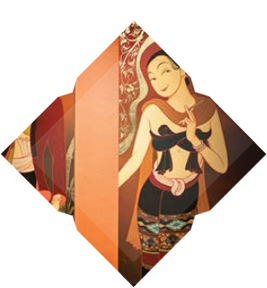
The paintings of Lanna ladies around the resort depict the typical facial features of Lanna people. They also accurately portray the traditional skirts that Lanna women wear with unique embroidered patterns.
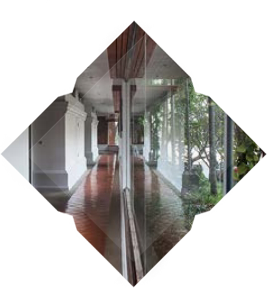
The corridor in front of the guestrooms is designed to depict the walkway beside a temple, creating a tranquil atmosphere.
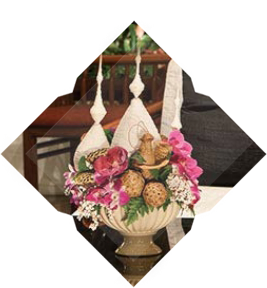
All flower arrangements in the resort are arranged in the same styles used in Lanna traditional ceremonies.
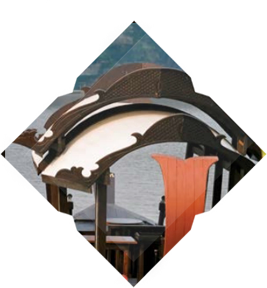
The resort’s “boat” is designed in the shape of traditional scorpion tail boat. In the past, scorpion tail boats were used to transport merchandise. Since the resort’s boat is adapted to serve guests, we added a roof and side panels to the boat. The weaving items are included to give a cozy feeling. Red and black colors are used in the boat.
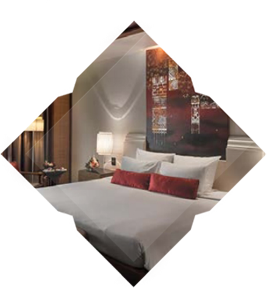
The regular guestrooms are painted in brown shades providing a warm welcoming feeling and a simple atmosphere. The guestrooms are decorated with traditional woven fabrics from several ethnic groups.
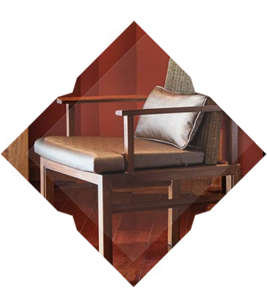
The chairs in the guestrooms mimic the look of chairs in Buddhist temples, with solid wood and fine weaving.
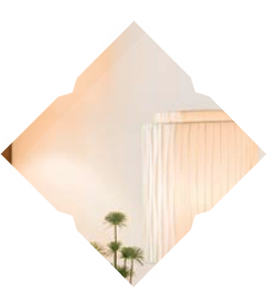
The lamps in guestrooms are modeled on traditional Lanna lanterns.
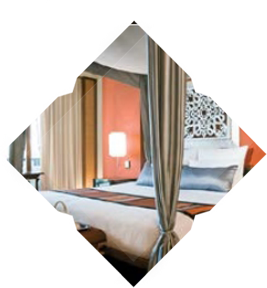
Suites are painted dark-red, providing a warm yet luxurious atmosphere.
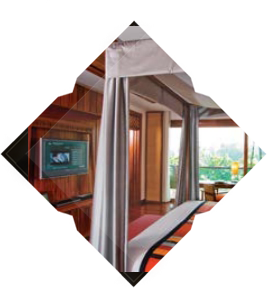
The beds are built in the shape of weaving looms. The bed heads are finely carved and decorated with silver foil.
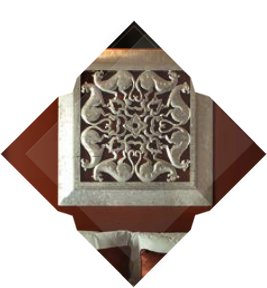
The bedheads are finely carved and decorated with silver foil.
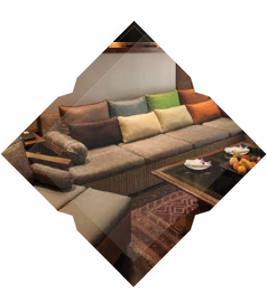
The traditional sofas in the suites are comfortable whether sitting cross legged or reclining.
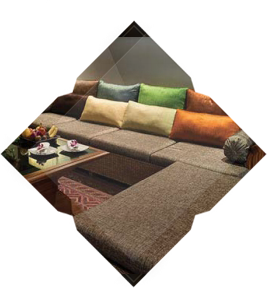
Traditional bedsteads in the living rooms are designed for guests to sit comfortably in any position.
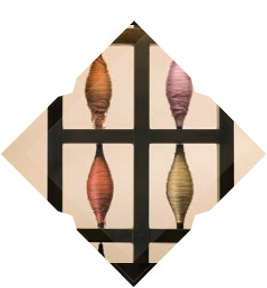
The silk spindle is also represented in the shape of some of the lamps around the resort. The spindle is an important tool in the Lanna weaving processes.
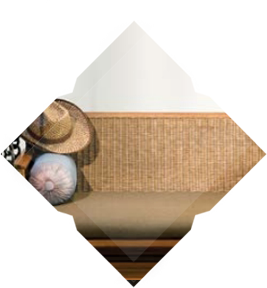
Swings are made for relaxing, chatting or reading a book. The swings’ bases are in lotus patterns. The use of wicker gives a cozy feeling to guests.
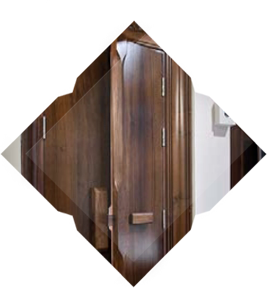
Bathroom doors are designed in traditional Lanna style. Solid teak wood is used to make the doors, symbolizing the prosperity of Lanna.
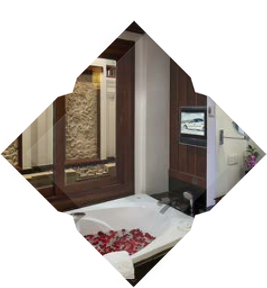
The restroom is surrounded by solid blank sidewalls. The small holes in the sidewalls and a sculpture next to the waterfall are typical of Lanna art.
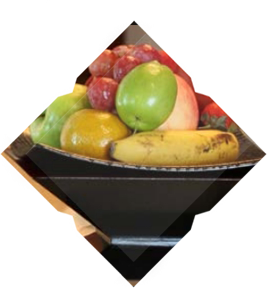
Most amenities in the guestrooms are in black, matching the lacquer ware used in the rooms. Woven items in the guestrooms also show off the highly skilled Lanna craftsmanship.
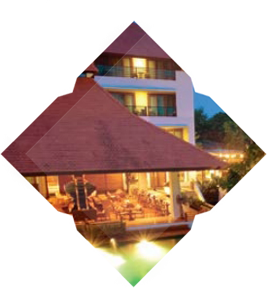
The pavilion roof is influenced by the use of clay tiles in Lanna architecture.
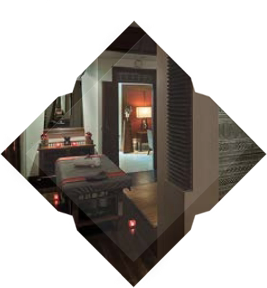
Spa rooms are decorated with décor items from six different ethnic groups. Traditional woven cotton carpets are used in the spa.
